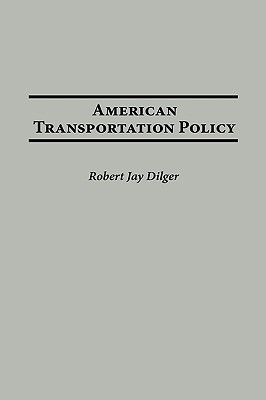
- We will send in 10–14 business days.
- Author: Robert J Dilger
- Publisher: Praeger
- ISBN-10: 0275978532
- ISBN-13: 9780275978532
- Format: 15.7 x 23.6 x 2.2 cm, hardcover
- Language: English
- SAVE -10% with code: EXTRA
Reviews
Description
The author maintains that American politics, institutional arrangements, and political culture have prevented the development of a comprehensive, integrated, intermodal transportation policy in the United States. Dilger makes his argument by examining the development of the national governmental authority in both surface and air transportation. Each transportation mode--highways/mass transit, Amtrak, and civilian air transportation--is examined separately, assessing their development over time and focusing on current controversies, including, but not limited to, the highway versus mass transit funding issue; the recent decentralization of decision making authority on surface transportation policy; Amtrak's viability as an alternative to the automobile; and current antiterrorist policies' effect on transportation policy.
EXTRA 10 % discount with code: EXTRA
The promotion ends in 19d.01:09:48
The discount code is valid when purchasing from 10 €. Discounts do not stack.
- Author: Robert J Dilger
- Publisher: Praeger
- ISBN-10: 0275978532
- ISBN-13: 9780275978532
- Format: 15.7 x 23.6 x 2.2 cm, hardcover
- Language: English English
The author maintains that American politics, institutional arrangements, and political culture have prevented the development of a comprehensive, integrated, intermodal transportation policy in the United States. Dilger makes his argument by examining the development of the national governmental authority in both surface and air transportation. Each transportation mode--highways/mass transit, Amtrak, and civilian air transportation--is examined separately, assessing their development over time and focusing on current controversies, including, but not limited to, the highway versus mass transit funding issue; the recent decentralization of decision making authority on surface transportation policy; Amtrak's viability as an alternative to the automobile; and current antiterrorist policies' effect on transportation policy.


Reviews